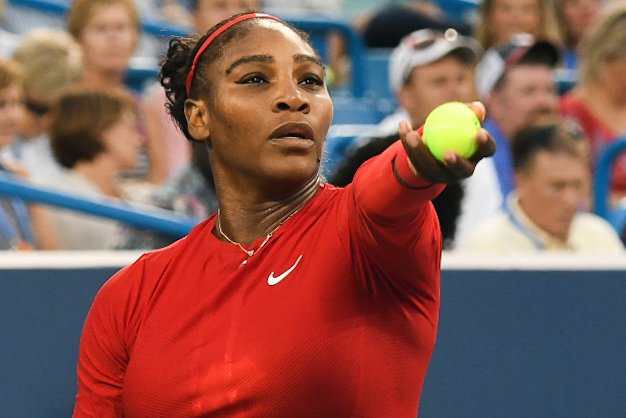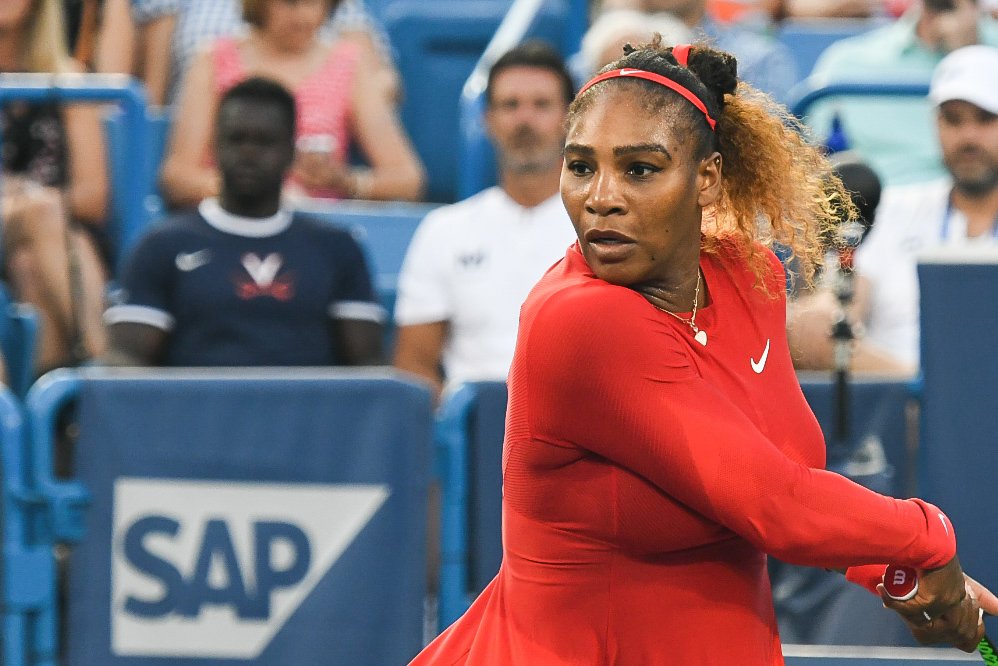|
Jonathan Newman and James Rogers are the hosts of The Body Serve Tennis Podcast. In the The Body Serve Diary, Jonathan and James write conversationally about the various happenings in the wild world of tennis.
JAMES: Monday at the Western & Southern Open has been packed with tennis and player press appearances. Organizers pulled off a rather surprising night session: Serena-Gavrilova followed by Djokovic-Johnson, an early-week billing made possible by the two legends’ currently depressed rankings. No less than Stan Wawrinka was relegated to the Grandstand, getting a 3-set win over 12-seed Diego Schwartzman. It seems like the real Stan is starting to show. Serena was back to business with a straightforward win over Aussie Daria Gavrilova. Jonathan, what did you think Serena did well tonight? JONATHAN: What didn’t she do well tonight? We saw her on the practice court looking assured and in good spirits before the match, and it translated to a comprehensive win over Gavrilova. Her serve was impeccable, with good mix of speed and placement. For me, it was her movement that was most impressive: Gavrilova was unable to disrupt her as Serena changed direction, running laterally and towards the net in ways we haven’t seen since her comeback. JR: It’s funny that her first serve percentage was only 44 percent, because it didn’t feel that way watching the match. Serena wasn’t broken, and she protected her second serve well; in fact, Gavrilova created only one break chance the entire match. A lot of the technical things were just working well for Serena tonight. As you said, the movement was encouraging, but even more impressive was her anticipation, sensing where Gavrilova would hit. This allowed her to get to balls with plenty of time to create her signature angles. JN: This was a totally different Serena from the one we saw in San Jose two weeks ago, when she suffered the worst loss of her career against Johanna Konta. Whatever concerns onlookers may have had for Serena’s US Open Series should be put to rest after a performance like tonight’s. Serena posted to social media shortly after that loss that she was struggling with “post-partum emotions” and other personal issues, struggling to balance motherhood and tennis. Perhaps that loss is now put into proper perspective? JR: Yeah, I think it’s impossible for us to understand what any new mother is going through, especially one whose life has undergone so much change. A new marriage, a new baby, the immense pressure to stop breastfeeding and return to dominating tennis -- it’s a lot, and to me, the only surprising thing about it so far is that Serena has been open and vulnerable about her feelings. We’ll see what happens against Petra Kvitova tomorrow, but for tonight, Serena has silenced some doubters. Elsewhere on the grounds, Frances Tiafoe served for the match against Denis Shapovalov, having broken him to go up 5-4 in the third set. Denis broke Tiafoe easily, and then reeled off the next 2 games to take the match. Tiafoe reached the round of 16 last year after taking out Sascha Zverev in the previous round. JN: After Tiafoe’s heroics here last year against Zverev, he was unable to replicate, and capitalize on the crowd support to close out the match. When he broke Shapovalov to lead 5-4 in the final set, Tiafoe roared on his way to the changeover, beckoning the crowd to get on their feet and up the ante. Unfortunately for him, Shapovalov didn’t wallow and came right back like the burgeoning professional he is. A tough tough loss for Frances, but a mettle-building one for Denis. The crowd thoroughly enjoyed that one; it seemed like they appreciated the hype surrounding Shapovalov and weren’t too mad about their own player losing.
We’ve spent most of our time the first two days here talking to WTA coaches and the top seeds on both tours as part of their pre-tournament media availability. What are some of the things you’d like to share? JR: For much of the day, it’s back-to-back top players being shuffled in and out of the main press room. Last year, a lot of the biggest names were out, but today we were lucky to speak with Roger Federer, Petra Kvitova, Caroline Wozniacki, Wimbledon winner Angie Kerber, and defending champs Grigor Dimitrov and Garbine Muguruza. Marin Cilic’s interview was particularly endearing to me. When asked whether he felt his accomplishments are underappreciated, he remarked that he felt “grateful to be in this era.” When other players might see it as a huge disadvantage, he said (unprompted) that playing in this great era has made him better, rather than wishing he had excelled in a lesser period of men’s tennis. Angie Kerber seemed a different person from last year, when she was in the midst of a wicked slump. Having added Wimbledon to her resume after many wrote her off, she seems to have gained so much wisdom and perspective, saying “I know how to deal with this now. I know that I will not win every single match now.” Like I said last year, seeing players in press can sometimes change your perspective of them completely, other times it confirms or expands what you thought you knew. Either way, it forces you to reckon with players as human beings, and for me, that makes me both more interested in the sport and helps expand my understanding of it.
JN: Yes to all of that! We asked Roger Federer why he thought there have been no openly gay tennis players on the ATP, and if he felt the tour was a safe and receptive space for players to come out. Be sure to look out for our upcoming podcasts from Cincy where you’ll be able to hear audio of that and our thoughts on the exchange and other player responses.
0 Comments
Leave a Reply. |
ARCHIVES
September 2022
|


 RSS Feed
RSS Feed